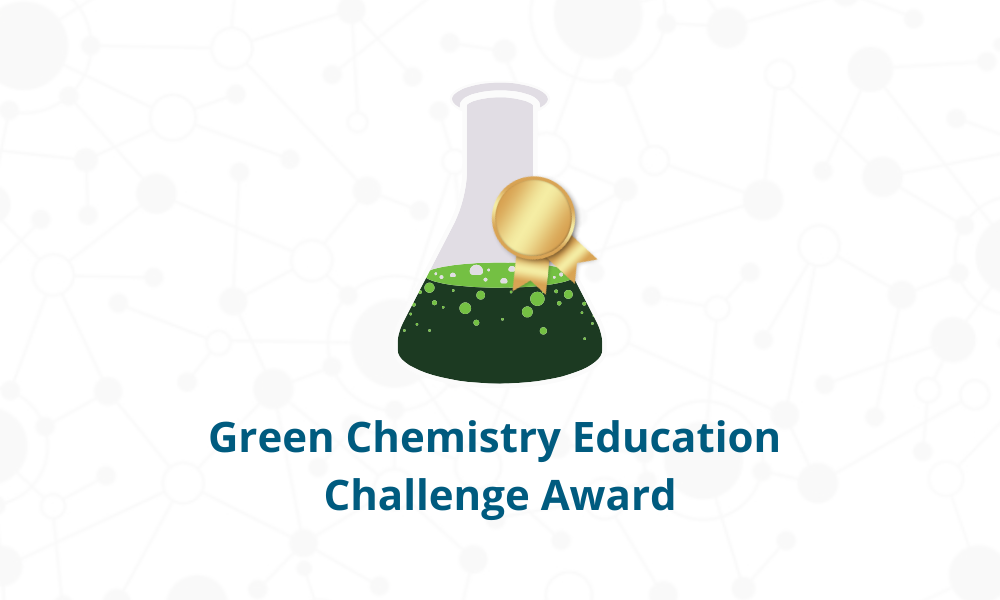 Congratulations to the remarkable 2022-2023 Green Chemistry Education Challenge Award winners for their outstanding contributions in designing innovative projects that are poised to advance green chemistry education within their institutions. By pioneering these initiatives, they are not only shaping the future of education but also leading the way toward a more sustainable world. We look forward to witnessing the positive impact their projects will have on both their campuses and the broader community.
Congratulations to the remarkable 2022-2023 Green Chemistry Education Challenge Award winners for their outstanding contributions in designing innovative projects that are poised to advance green chemistry education within their institutions. By pioneering these initiatives, they are not only shaping the future of education but also leading the way toward a more sustainable world. We look forward to witnessing the positive impact their projects will have on both their campuses and the broader community.
Thank you to our sponsors, Dow, Biogen and 3M, for their invaluable support in making these awards possible. Their commitment to fostering innovation in green chemistry education is instrumental to ensuring the workforce is trained with the green chemistry knowledge and skills needed for a sustainable future.
Beyond Benign’s Green Chemistry Education Challenge Awards aim to support the integration of green chemistry education into courses and curricula with financial aid to achieve impactful change. Strong applications receive funding to achieve the following goals:
- Increase the awareness of green chemistry and the Green Chemistry Commitment (GCC) program across the chemistry department and institution.
- Increase awareness of the institution’s dedication to green chemistry education through conference attendance, webinars, publications, social media campaigns, etc.
- Transform curriculum and lab procedures to achieve the GCC’s Green Chemistry Student Learning Objectives so all chemistry majors, upon graduation, have proficiency in the following essential green chemistry competencies: Theory, Toxicology, Laboratory Skills & Application.
If you would like to apply for a Green Chemistry Education Challenge Awards, we currently have two open applications. Application deadlines are October 31st.
If your organization would like to sponsor an award for faculty or students, please reach out to nicki_wiggins@beyondbenign.org
Dow Green Chemistry Education Challenge Awards
These five awards were provided to Green Chemistry Commitment Signing Institutions to accomplish 1-year green chemistry projects that advance the teaching and learning of green chemistry. The funding could be utilized to drive awareness for Green Chemistry or support the adoption of Green Chemistry curriculum into chemistry courses, laboratories and/or outreach activities. Funding support provided by Dow.
Winners:
Institution: Bradley University
Faculty Lead: Dean Campbell
Project Description: The primary objective of this project is to bring green chemistry concepts to the Bradley University students by incorporating a robust set of green chemistry labs into the General and Organic Chemistry laboratory courses. To accomplish this objective, the grant funding will be used to purchase supplies and reagents for use in these labs. With approximately a quarter of the 5,400 Bradley University students enrolled in General and Organic Chemistry labs, this provides an excellent opportunity to help increase awareness of green chemistry across the entire campus.
Institution: South Dakota State University (SDSU)
Faculty Lead: Sara K. Madsen
Project Description: Virtual Reality (VR) will be used to assess its learning effectiveness in Organic Chemistry laboratory that currently uses green chemistry pedagogy. The goal of this project is to use VR to provide chemistry students an opportunity to practice green chemistry techniques and experiments before entering a real space laboratory. SDSU faculty, staff, and administrators, SDSU students, and South Dakota Tribal Colleges will benefit from this project. This project will design a VR template that can achieve the following objectives:
- Practice the procedures of a traditional green experiment and non-green experiment and assess learning in VR.
- Conduct a green experiment and non-green experiment in the real laboratory space and assess learning, calculate energy consumption, atom economy and E-Factor, in both VR and non-VR spaces.
- Modify VR objects to optimize and pilot the green chemistry experiment in VR.
Institution: University of Minnesota
Faculty Lead: Nathan Rackstraw
Project Description: The Sustainable and Green Chemistry Committee (SGC) at the University of Minnesota (UMN) plans to:
1) increase the Chemistry department’s dedication to green chemistry by inviting an external guest speaker in the Fall semester of 2023.
2) increase awareness of current green chemistry practices (theory, toxicology, laboratory skills, and application of green chemistry) across the department by organizing monthly researcher (graduate student and postdoctoral scholar) roundtable meetings, and
3) transform an existing middle school science outreach program to incorporate green chemistry experiments into their curriculum.
Institution: University of Colorado, Colorado Springs
Faculty Lead: Nicole Juhl and Tisha Mendiola Jessop
Project Description: Faculty members, Nicole Juhl and Tisha Mendiola Jessop, design Green and Sustainable Chemistry modules to serve as models for their department as resources and concrete examples for how to incorporate green chemistry without adding to the curriculum. Additionally, they will increase and improve their education through professional development by attending the American Chemical Society Green Chemistry Institute (ACS GCI) Green Chemistry and Engineering Conference in June of 2023 and share their learnings with their colleagues over the 2023-2024 academic year.
Institution: Saint Francis University
Faculty Lead: Ashley Smith-Diemler
Project Description: This project seeks to expand Saint Francis University’s (SFU’s) awareness of the Green Chemistry Commitment in both our Chemistry Department and the larger surrounding community through the following objectives:
- Expand the application and teaching of Green Chemistry Principles for both the lecture and laboratory courses.
- Redesign Chemistry major seminar (taken one semester/year by all Chemistry majors) to focus on green chemistry principles, challenges, and core competencies.
- Create new green chemistry-themed activities that can be taught in local schools and libraries by the existing outreach organization (R.O.C.K. – Rural Outreach Chemistry for Kids).
Biogen Green Chemistry Education Challenge Awards
These two awards were given to Green Chemistry Commitment Signing Institutions who are US-based Minority Serving Institutions (MSIs) to accomplish 1-year green chemistry projects that advance the teaching and learning of green chemistry. The funding could be used to drive awareness for Green Chemistry or support the adoption of Green Chemistry curriculum into chemistry courses, laboratories and/or outreach activities. Funding support from Biogen.
Winners:
Institution: Kean University
Faculty Leads: Heather Stokes-Huby, Subhasish Chatterjee
Project Description: Kean University is starting a Green Chemistry Initiative and using a lab-based green chemistry dye activity to kick off the Initiative and to enhance and strengthen the interest of student participants. Through their Green Chemistry Initiative, Kean University will develop new laboratory experiments and courses in green chemistry and propose a green chemistry concentration within their chemistry major offerings at the University.
Institution: St. Edward’s University
Faculty Lead: Lauren Mitchell
Project Description: St. Edward’s University will implement a new green chemistry experiment into their introductory level Organic Chemistry lab course. Students will synthesize and purify aspirin at microscale quantities using specialized glassware, then they will compare their results to experiments run earlier in the semester to evaluate the greenness of different synthetic approaches and their impacts on waste reduction. St. Edward’s University will adapt future experiments in other Organic Chemistry lab courses to use the same microscale synthetic approach.
Green Chemistry Education Student Group Challenge Awards
These fourteen (14) Green Chemistry Education Awards were provided to student groups from Minority Serving Institutions (MSIs) to run three green chemistry events or outreach activities that advance the adoption of green chemistry on their campuses or in their local communities. This funding is to help support ACS Student Chapters enhance their applications for green chemistry recognition from the American Chemical Society Green Chemistry Institute. Funding provided by 3M and Beyond Benign.
3M Green Chemistry Education Student Group Challenge Awards – US Institutions:
Institution: California State University, San Marcos
Faculty Advisor: Robert Iafe
Project Plan: The CSUSM ACS Student Chapter will organize a Green Chemistry Summit event to introduce green chemistry to the campus and local community colleges, featuring Dr. John Warner as a keynote speaker. The group will also provide a tour of Genomatica (a green chemistry award winning biotech company based in San Diego) to showcase a local industry example of green chemistry research applications. The group’s final project includes running a green chemistry outreach activity to a local high school, where a green chemistry experiment to create a solar cell will be used to discuss alternative energy, emissions prevention, and redox chemistry.
Institution: University of Minnesota, Twin Cities
Faculty Advisor: Jane Wissinger
Project Plan: The ACS-UMN Student Chapter will run a short seminar series for the Department of Chemistry to highlight green chemistry in different industries. Guest speakers from diverse backgrounds such as pharmaceutics, chemical engineering, and medicinal chemistry will be invited. Members of the Student Chapter will volunteer at local elementary and middle schools to run green chemistry demonstrations as outreach activities. Finally, the Student Chapter will run general educational meetings for undergraduate students at the University of Minnesota. These meetings will discuss ocean acidification and the use of sustainable starting materials in chemistry research and will use lesson plans and activities from Beyond Benign.
Institution: Texas Woman’s University (TWU)
Faculty Advisor: John Beatty
Project Plan: The TWU-KEM Club will run two Chemistry Magic Show events, for homeschooled students, and for local high school students. In these events, students will learn about microplastics in the environment and the importance of finding greener alternatives to plastics through participation in a bioplastics green chemistry experiment. The local high school students will be invited to the TWU campus along with their dual credit teachers. Finally, the TWU-KEM Club will expand their Zero Impact Events on Campus Program through decreasing the use of single-use plastics and holding discussions on the importance of waste reduction.
Institution: Augsburg University
Faculty Advisor(s): Sarah Lam, Michael Wentzel
Project Plan: The Augsburg University ACS Student Chapter will run three outreach events for undergraduate students. The first outreach activity will be an Advanced Biomimicry Matching Game, where students will understand the concept of biomimicry and learn about the impact of carbon dioxide on the environment through exploring acid and base chemistry in the context of less hazardous synthesis, designing for degradation, and using benign solvents. The second outreach activity will discuss endangered and critical elements, and how challenges associated with their sustainable use and preservation will impact the future of chemistry for energy storage research (batteries, supercapacitors, etc.). Finally, the Student Chapter will run a task-based scavenger hunt to connect the principles of green chemistry to students’ real-world environments, and to further their understanding of how green chemistry can be used to solve local sustainability challenges.
Institution: Hampton University
Faculty Advisor(s): Dawanna White, Oluwatoyin Asojo
Project Plan: The Hampton University ACS Student Chapter will run three events. The first event is titled “A Greener Future of Chemistry” and will introduce the audience to the concept of green chemistry. Speakers will be invited that will discuss the intersection of green chemistry and environmental justice. Their second event will be a community-based event run locally, where simple green chemistry experiments will be conducted by school-aged children to find ways to reduce waste and be eco-friendly in the chemistry laboratory. Finally, the Student Chapter’s third project is a department-wide “HU Chem Goes Green” competition to push chemistry and biochemistry undergraduate majors to practice green chemistry. Students will compete to see who can design and conduct the most hazard-free chemical reaction.
Institution: University of Puerto Rico, Mayagüez
Faculty Advisor: Carmen Amaralis Vega
Project Plan: The ACS-RUM Student Chapter at the University of Puerto Rico, Mayagüez will design and conduct three green chemistry workshops in the chemistry laboratories. These workshops will be attended by undergraduate students interested in green chemistry and will focus on how to synthesize chemicals using green reaction pathways. Promotion to other student members and professionals will be conducted through social media.
Institution: Prairie View A&M University (PVAMU)
Faculty Advisor: Andrea Oseolorun
Project Plan: The Chemistry Student Group at PVAMU will design and run three projects for the chemistry department. The first project is the creation and initiation of a departmental pilot composting program for spent coffee grounds and tea leaf waste to be used in a community garden project. Students will focus on green chemistry concepts centering on the reduction of waste and circular economics. The second project comprises a campus-wide green and sustainable chemistry poster campaign to introduce the entire campus to green and sustainable chemistry and to encourage widespread incorporation of Green Chemistry Principles and Practices. Finally, the third project involves designing and shooting a sustainability video to promote Green Chemistry Principles and sustainability concepts.
Institution: University of Puerto Rico, Rio Piedras
Faculty Advisor: Ingrid Montes
Project Plan: The University of Puerto Rico, Rio Piedras Student Chapter will run three events. The first event is a green chemistry section as part of a larger “Show of The Magic of Chemistry”, an annual signature student group event designed to outreach to local community members of all ages. The green chemistry section will include experiments to educate the public on pollution prevention, ocean acidification, and sustainable fabric dyes and textiles. The second event is a series of green chemistry hands-on demonstrations for K-12 students where participants will perform experiments using household products. Students will learn about green polymers and designing for degradation, in addition to understanding the importance of using safer alternatives when designing products. Finally, a green chemistry scavenger hunt event will be run for undergraduate students in the chemistry department, where Green Chemistry Principles are used as clues to determine scavenger hunt locations and to educate the general university community about the importance of incorporating green chemistry into daily life.
Institution: Wayne State University
Faculty Advisor: Susan White
Project Plan: The WSU ACS Student Chapter hosted a featured speaker as part of a Green Chemistry Seminar in the Department of Chemistry. Wayne State University’s Associate Director of Hazardous Materials gave a talk on waste removal processes on campus, and how green chemistry impacted her job. Audience members interacted with the speaker during Q&A sessions and additionally learned about the importance of waste reduction and circular economics. The second event run by the Student Chapter included a baking experiment to simulate the Green Chemistry Principle of catalysis for more efficient reactions. Undergraduate students learnt how catalysts work using two methods to bake cupcakes. The third event was a green chemistry experiment for undergraduate students to make biodegradable plastic from milk and lemon juice. Students learned about the harmful processes associated with commercial plastic production and how implementing Green Chemistry Principles can create similar working products that are safer for the environment.
Institution: Tuskegee University
Faculty Advisor: Melissa Reeves
Project Plan: The Tuskegee SCACS Student Group will conduct three outreach activities. The first event will teach children at nearby schools about the importance of clean drinking water and water filtration by walking students through hands-on activities such as Beyond Benign’s desalination lesson. The second outreach activity will bring awareness to community members about the levels of plastic in the ocean and effects of water pollution through a recycling-centered full day event. Participants will learn about the chemistry of water pollution and how practicing green chemistry can mitigate water pollution. The final outreach activity will be a “green thumb” event where participants will plant various flowers while learning about the chemistry of air pollution and how toxins can be absorbed into plants. Audience participants will comprise middle school age children and Tuskegee undergraduate students.
Beyond Benign Green Chemistry Education Student Group Challenge Awards – International Institutions:
Institution: University of Ilorin
Faculty Advisor: Joshua Obaleye
Project Plan: The ACS Student Chapter at the University of Ilorin in Nigeria is planning three events to introduce and advocate for green chemistry on their campus. A seminar series will be hosted for the student body featuring green chemistry experts, where the principles and applications of green chemistry will be introduced to attendees. A waste-centered event will also be hosted, where participants will learn how to derive useful bio-active ingredients from local waste products. Lastly, the Student Chapter plans to run a green chemistry quiz and debate competition that is designed to foster further understanding of green chemistry for current and future generations of students.
Institution: The University of the West Indies, Mona
Faculty Advisor: Andrea Goldson-Barnaby
Project Plan: The ACS Jamaica International Student Chapter at the University of the West Indies, Mona, hosted several outreach activities funded through this award. In January and in June, the Student Chapter hosted students from the Buff Bay High School in Portland, where they were introduced to basic green chemistry concepts through interactive presentations and hands-on experiments to make a pH indicator from red cabbage and plastics from starch and milk. In February the Student Chapter hosted students from PGA Preparatory School for a day of interactive chemistry experiments using green practices and methods. Students tested the surface tension of water, investigated polymer interlacing, and understood gas production from chemical reactions using green materials. A science fair booth was hosted by the Student Chapter where green chemistry experiments were showcased for students across the country who attended. Additionally, in May, students from the Lister Mair Gilby School for the Deaf were funded to go on a field trip to Port Royal to learn about the importance of environmental protections through observing different ecosystems.
Institution: Yachay Tech University
Faculty Advisor: Thibault Terencio
Project Plan: The ACS Student Chapter Club de Química at Yachay Tech University will run events designed to support student understanding of green chemistry on campus and in local communities. Students will have an opportunity to visit a local industrial plant that focuses on applying green chemistry principles into their procedures to show students practical applications of green chemistry knowledge. Additionally, the student chapter will run a three-day crash course on biopolymers, featuring a workshop and talks to teach students how to use Ecuadorian agricultural residues to synthesize biopolymers as a tool for bioremediation. Conference presentations on circular economy principles will be highlighted through this award, allowing student work to be uplifted at different Ecuadorian universities. Finally, the Student Chapter will run a science fair outreach activity with local high school students to further their understanding and application of green chemistry.
Institution: UFRJ
Faculty Advisor: Estevão Freire
Project Plan: The ACS Student Chapter at the Universidade Federal do Rio de Janeiro will host several events to further understanding and promotion of green chemistry to students across the educational spectrum. These events include running green chemistry experiments on-campus and at local schools during the National Week of Science and Technology. Experiments will include a variety of themes, including fostering inclusive learning environments for students who are deaf and blind. The Student Chapter is running the Brazilian Green Chemistry Olympics, where they will additionally be awarding prizes to students at the school and university levels who have demonstrated high knowledge of green chemistry and its applications in society. The Student Chapter will also support the second-ever hybrid Green Chemistry Winter School hosted at UFRJ, where a Student Paper Contest will be hosted to motivate students to share their green chemistry research projects. The Student Chapter will also participate in hosting the second Latin American Congress of Green Chemistry, which includes representatives from Brazil, Costa Rica, Colombia, Mexico, and Guatemala. A panel discussion, lectures, a round table, and invited speakers will be supported. Finally, the Student Chapter will host the second Interchapter Meeting Brazil to promote sustainability and green chemistry actions to institutions across Brazil. ACS Student Chapters from different regions in Brazil will participate in this forum to share initiatives and actions that have been carried out to advance green chemistry at their home institutions, and to plan for future green chemistry actions needed in Brazil.


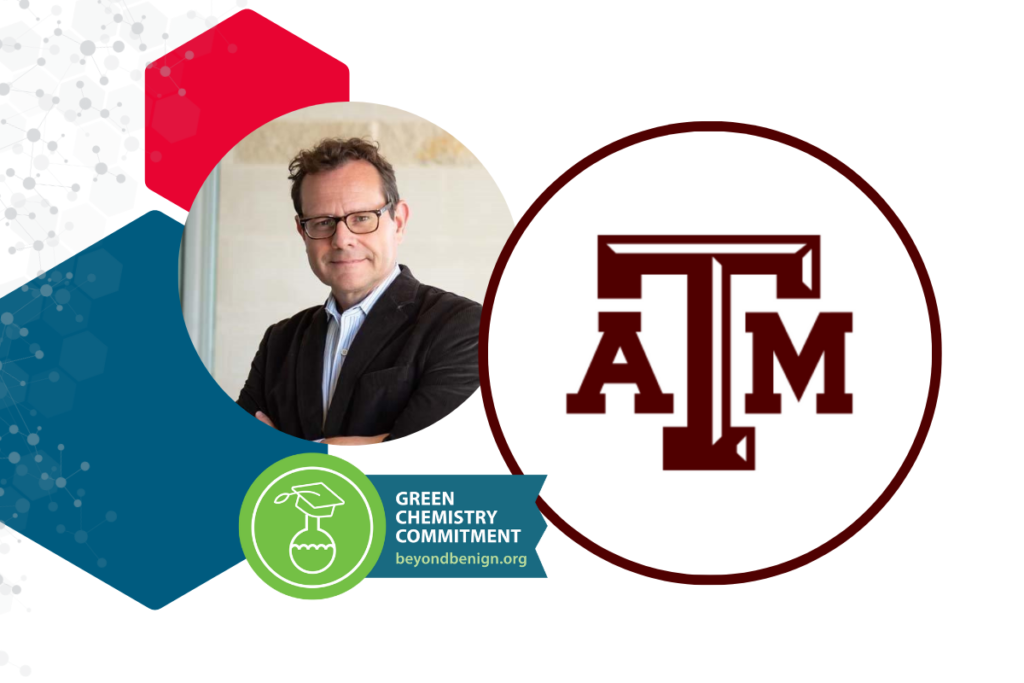
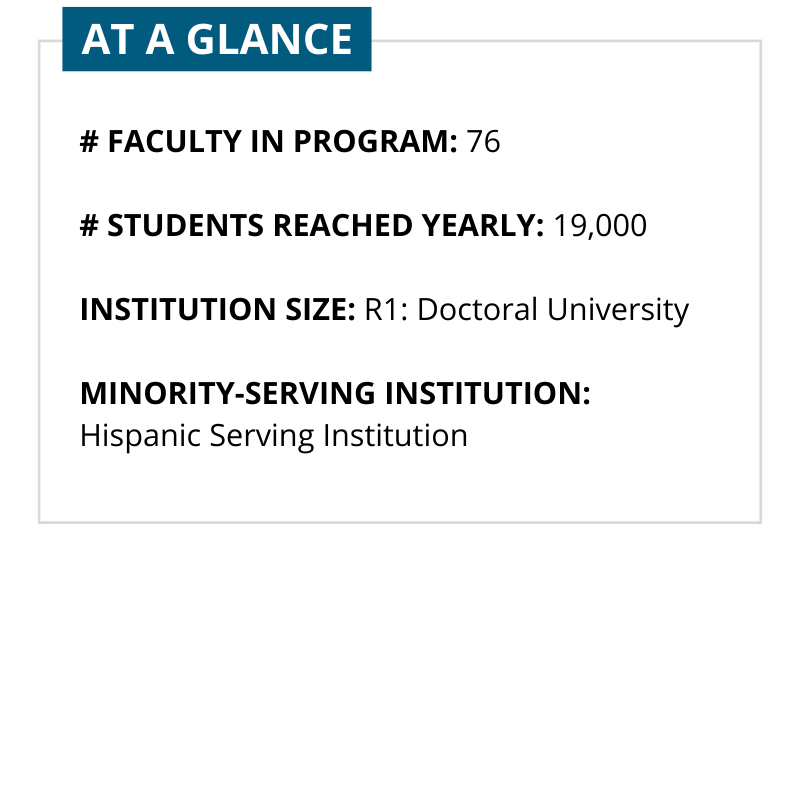
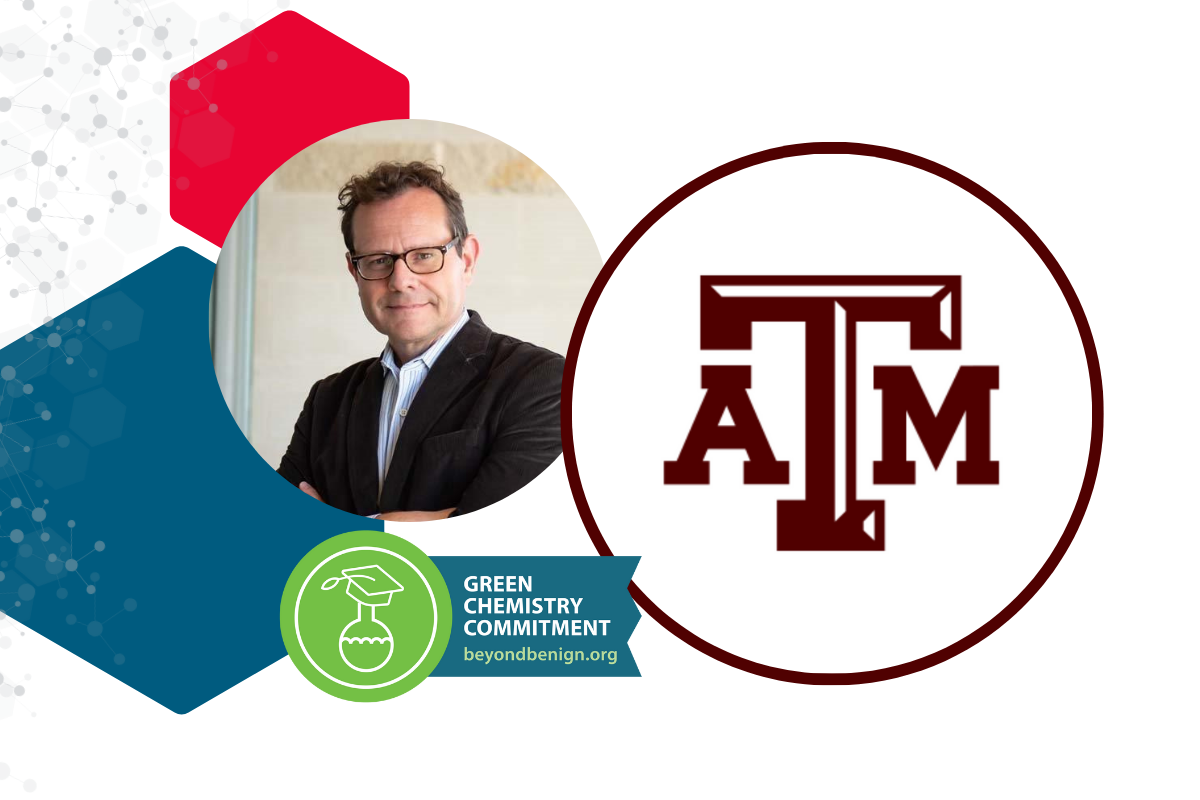
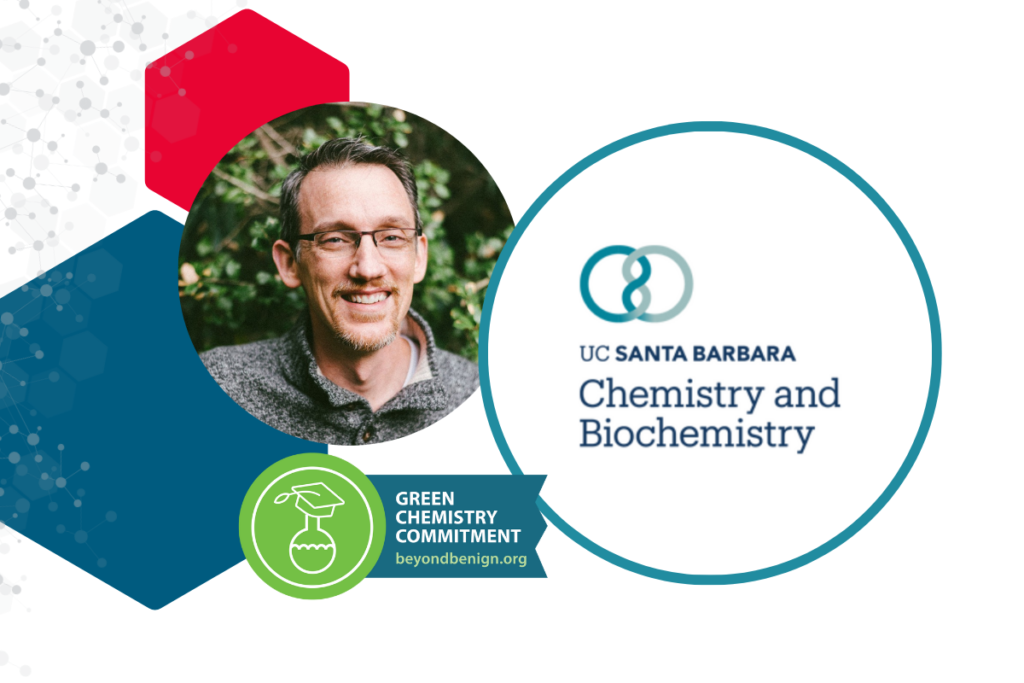
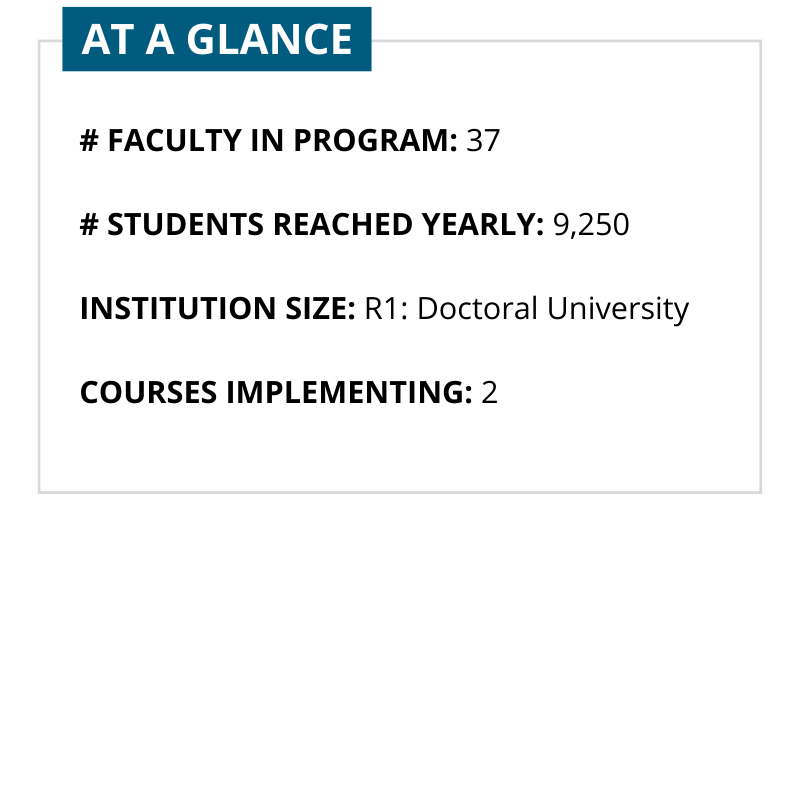
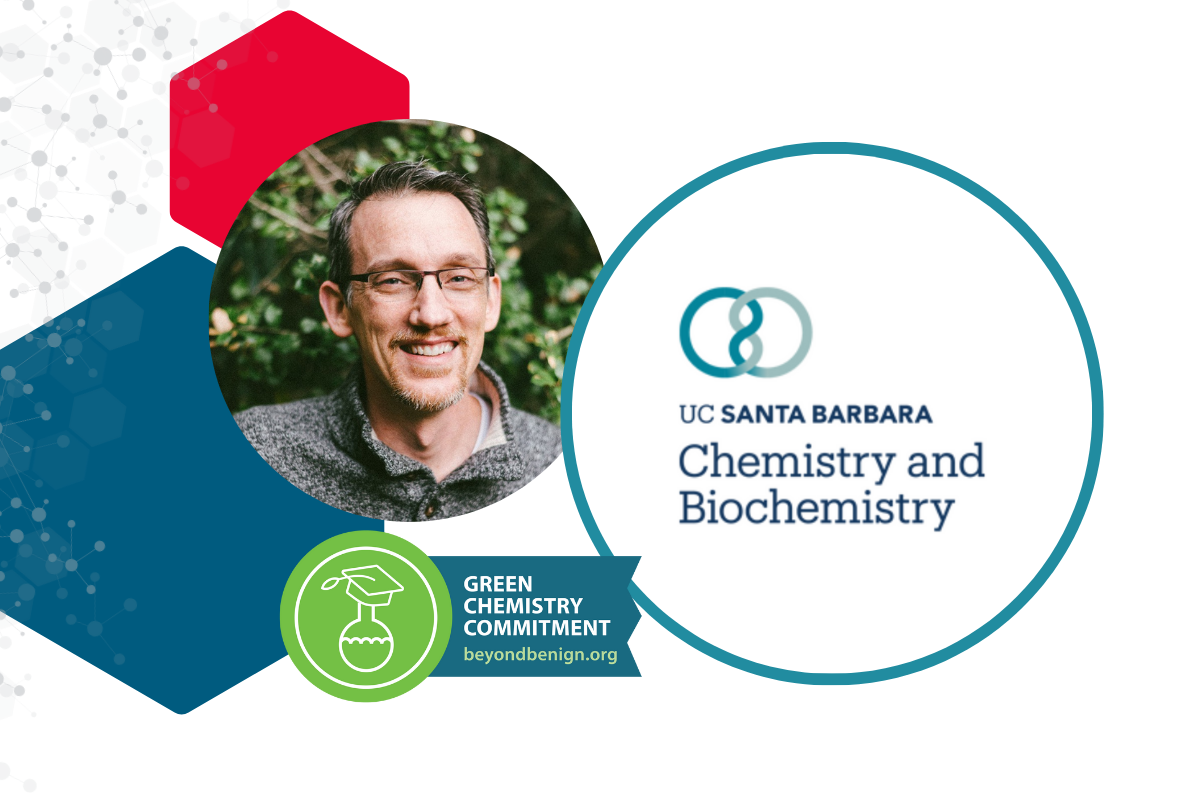
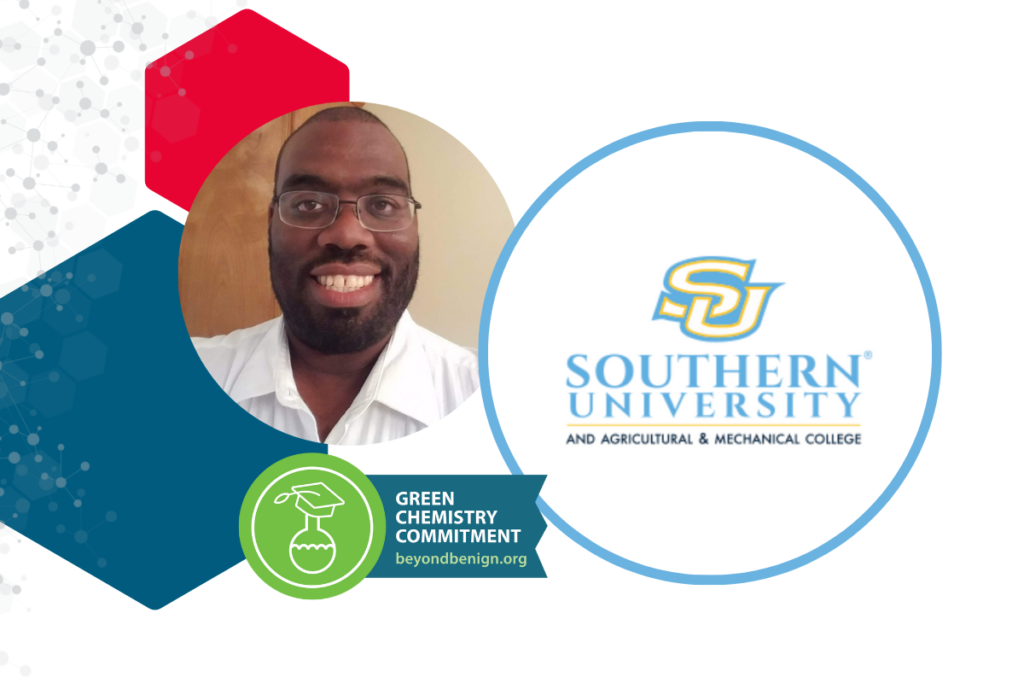
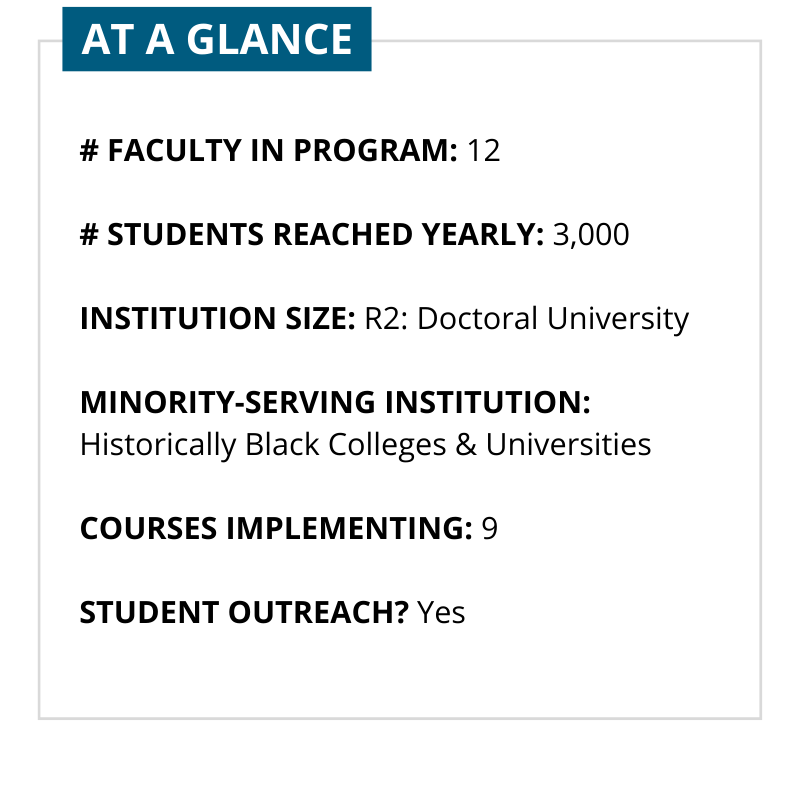

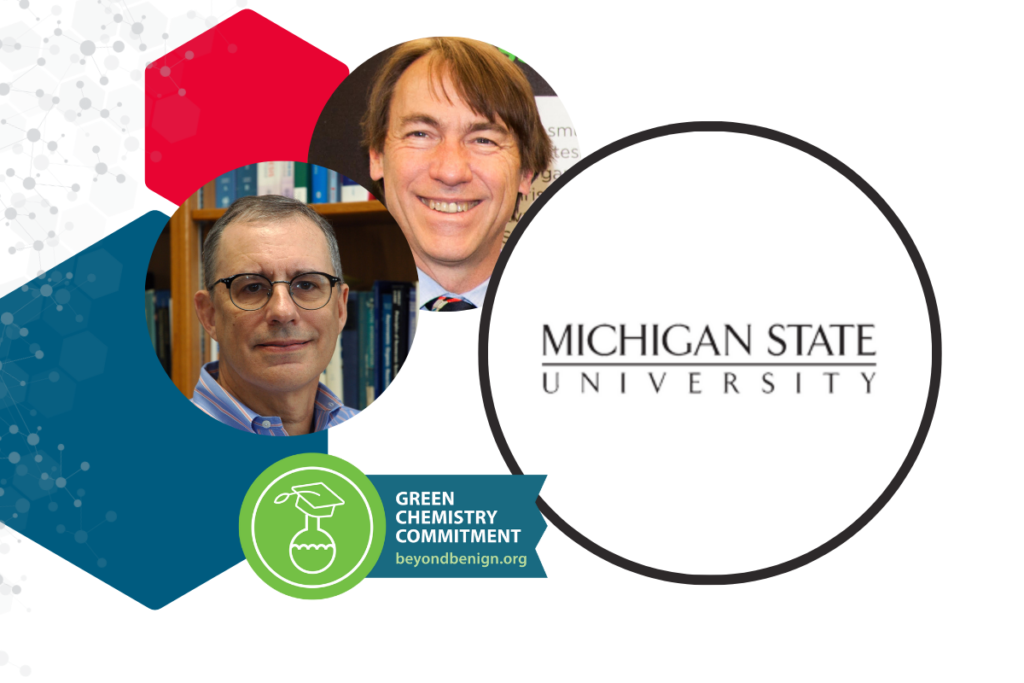
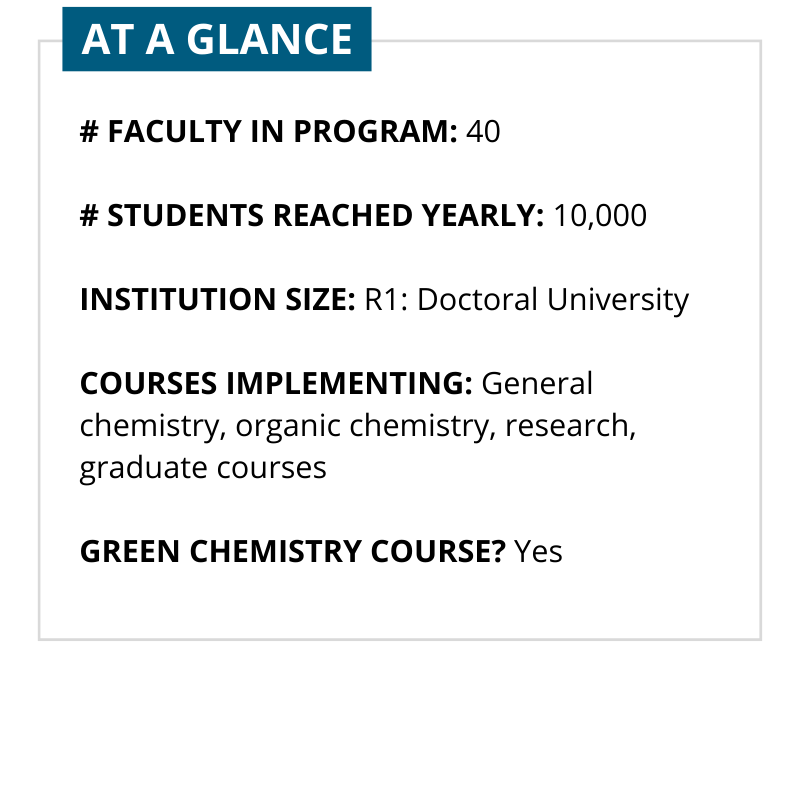
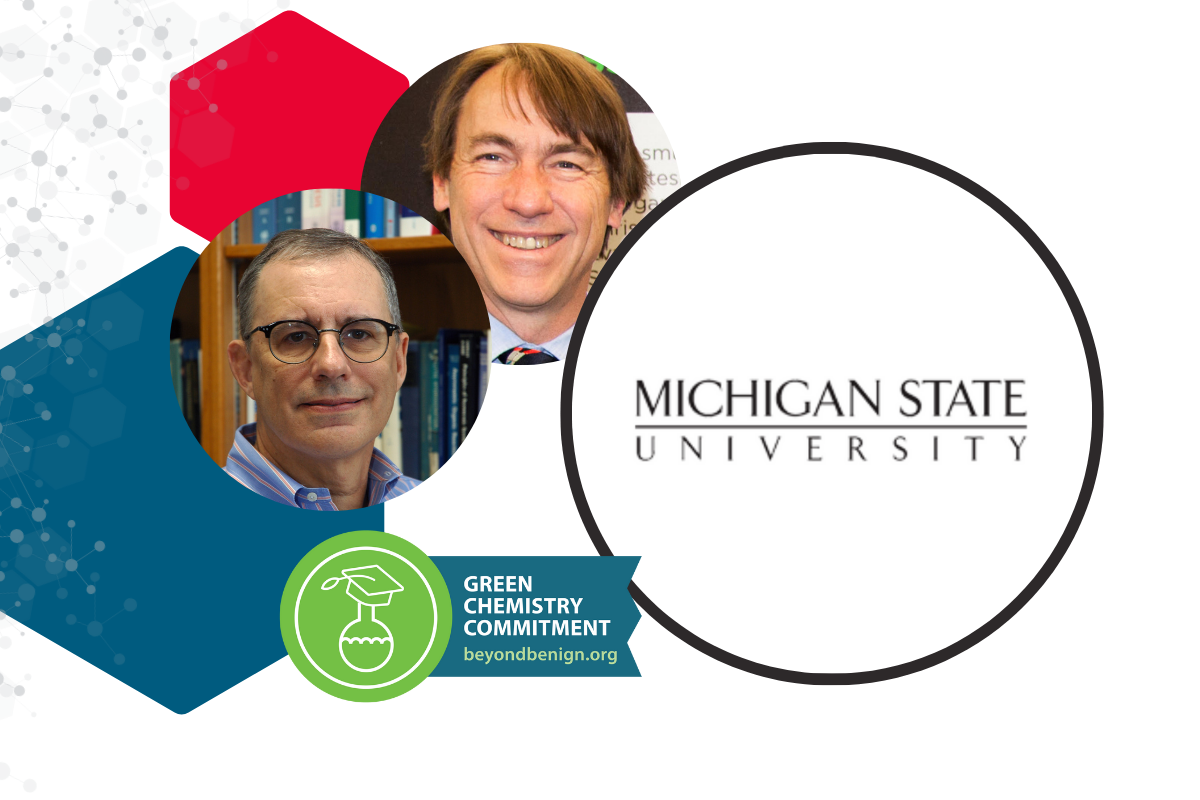

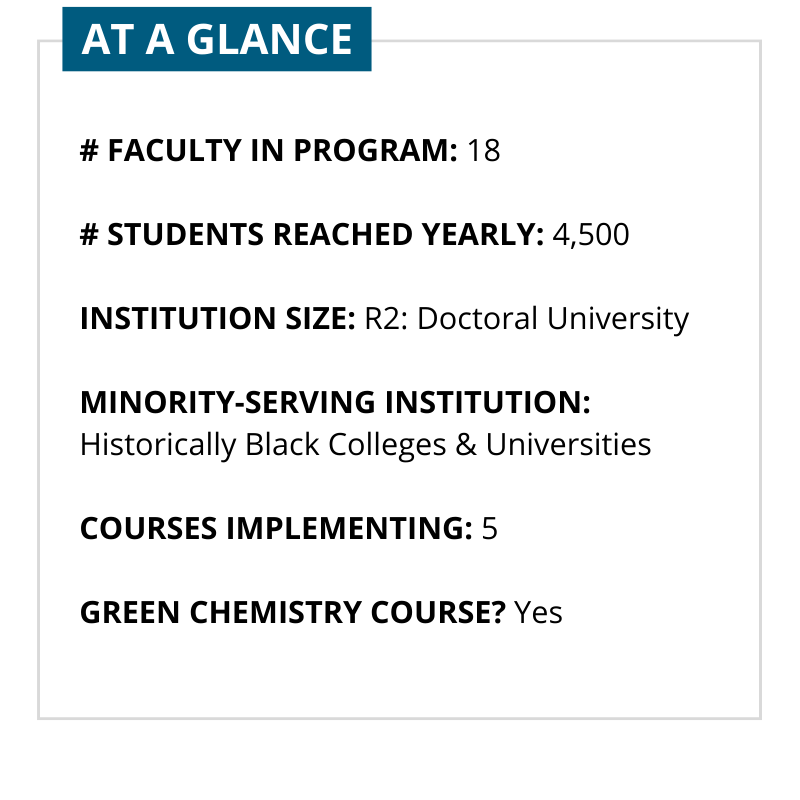

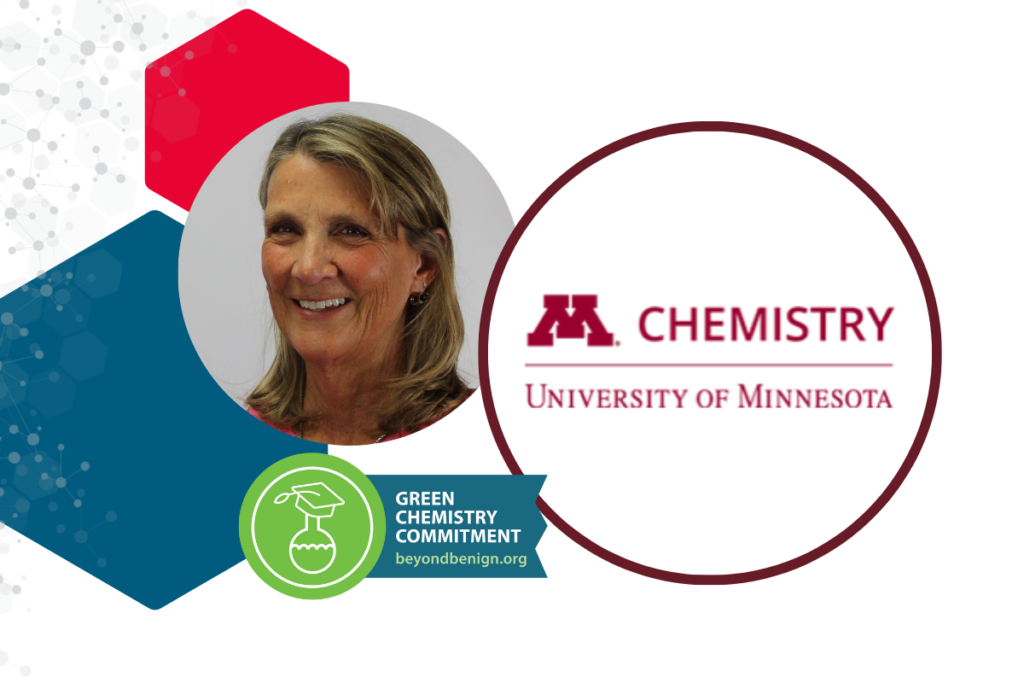
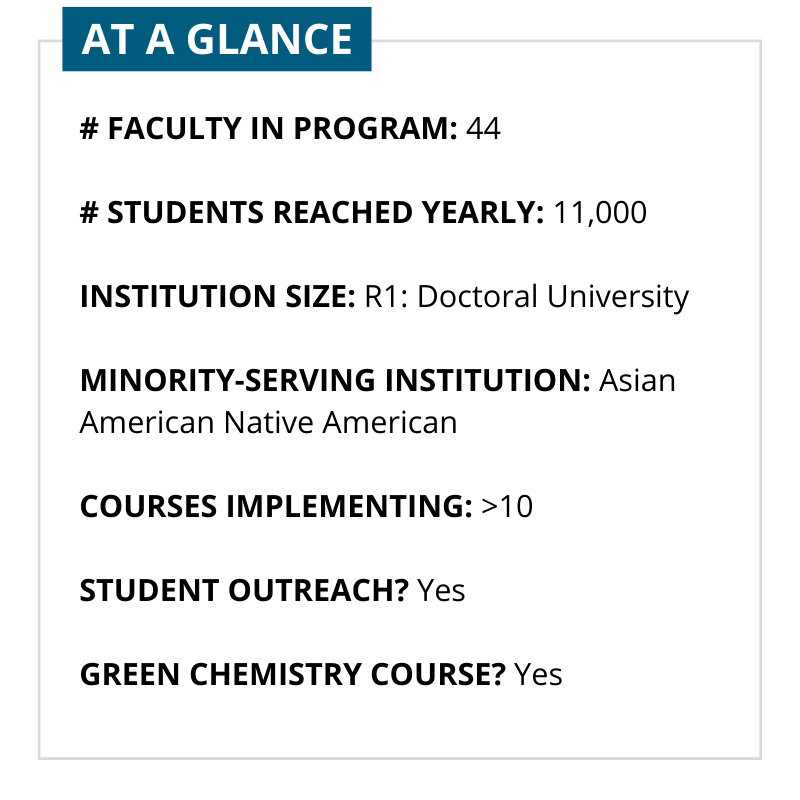 In 2013, Beyond Benign created the Green Chemistry Commitment (GCC) program with guidance from higher education institutions as a framework to unite the global Green Chemistry community. The GCC goal is to infuse Green Chemistry into Higher Education and give scientists the required skills to design processes and products less hazardous to human health and the environment.
In 2013, Beyond Benign created the Green Chemistry Commitment (GCC) program with guidance from higher education institutions as a framework to unite the global Green Chemistry community. The GCC goal is to infuse Green Chemistry into Higher Education and give scientists the required skills to design processes and products less hazardous to human health and the environment.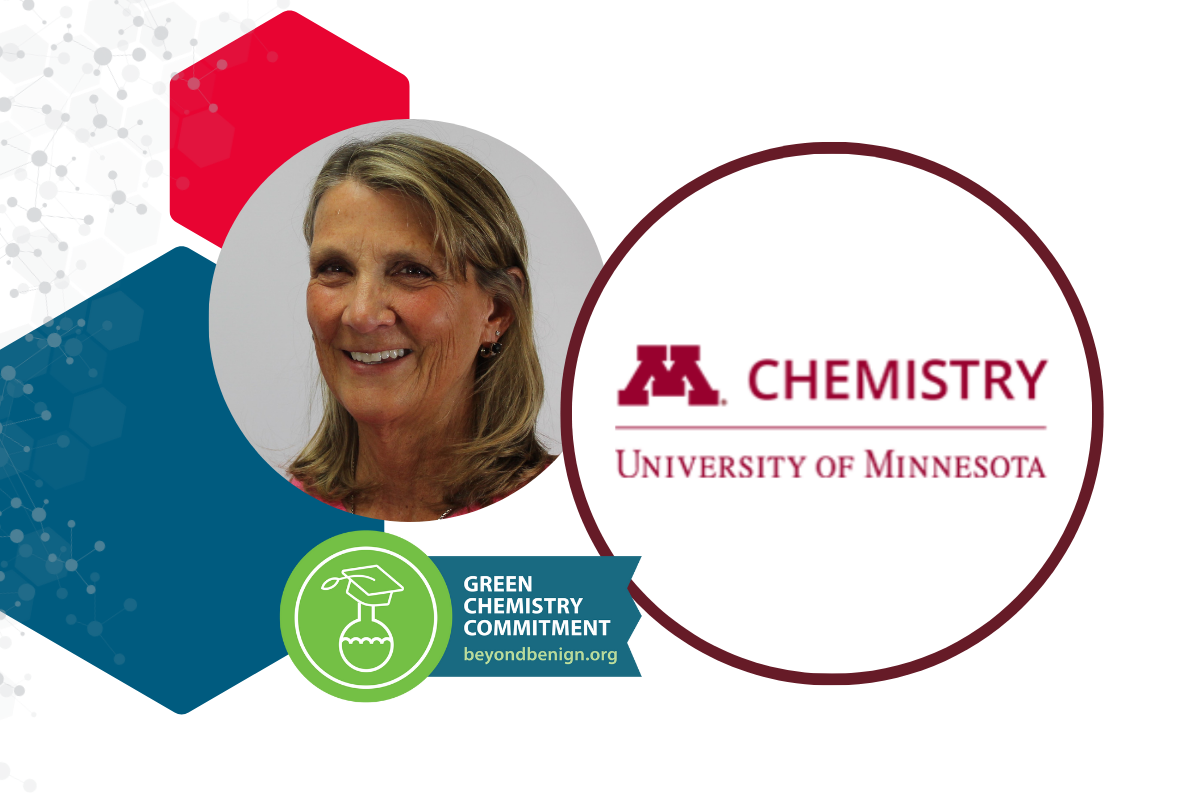
 Amidst a pandemic that challenged educators and the education system, Beyond Benign and Dow successfully designed and launched the first
Amidst a pandemic that challenged educators and the education system, Beyond Benign and Dow successfully designed and launched the first 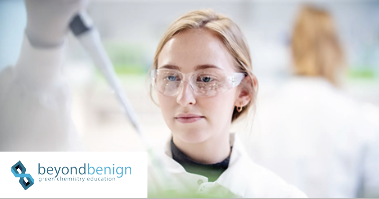



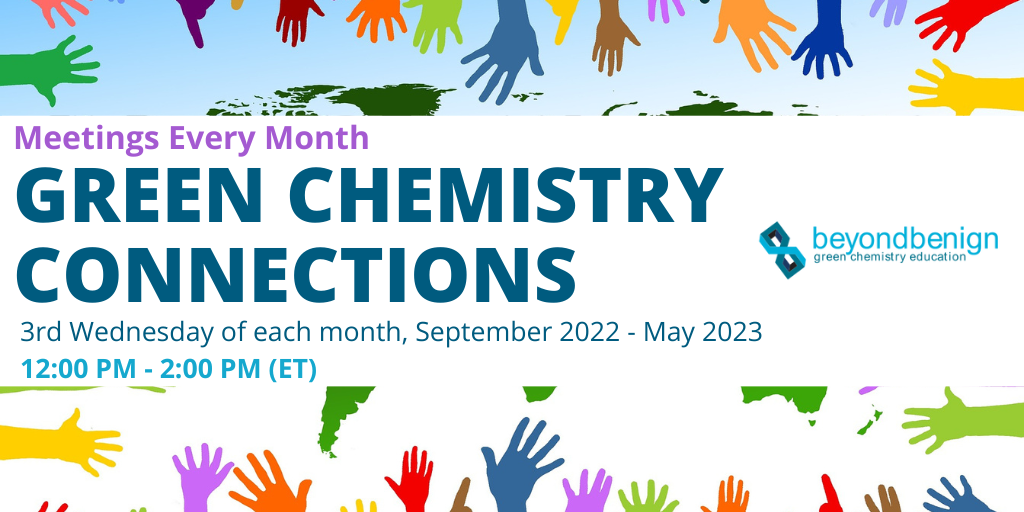 Our higher ed team hosted monthly Green Chemistry Connections events, where higher education and industry leaders actively practicing green chemistry and/or Toxicology shared their experiences. These events provided an opportunity for small group discussions, networking, and resource sharing, following the Green Chemistry Students Learning Objectives as a framework. Throughout the year, we hosted 244 faculty and students during our Connections series, 38% of which attended more than one meeting, for a total of 422 engagements across 9 meetings. Meeting topics ranged from favorite resources, to implementation models from around the world, to useful green chemistry tools used in real-world industry practice. If you’d like to discover our 2022-2023 GCC Connection series, please check out the archived webinar to watch the presentations.
Our higher ed team hosted monthly Green Chemistry Connections events, where higher education and industry leaders actively practicing green chemistry and/or Toxicology shared their experiences. These events provided an opportunity for small group discussions, networking, and resource sharing, following the Green Chemistry Students Learning Objectives as a framework. Throughout the year, we hosted 244 faculty and students during our Connections series, 38% of which attended more than one meeting, for a total of 422 engagements across 9 meetings. Meeting topics ranged from favorite resources, to implementation models from around the world, to useful green chemistry tools used in real-world industry practice. If you’d like to discover our 2022-2023 GCC Connection series, please check out the archived webinar to watch the presentations. 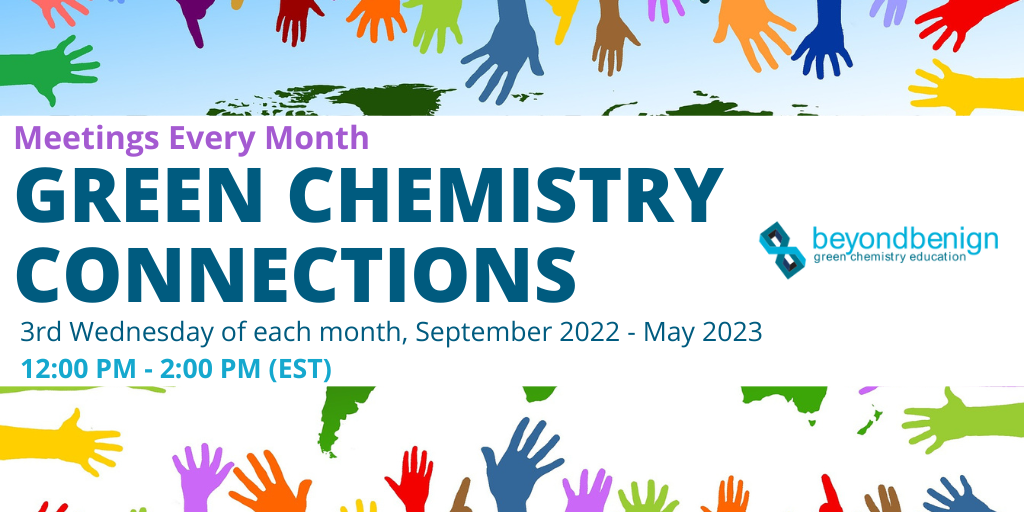


 After moving into the Ph.D. program last September, Olivia’s research has moved toward using algae as a renewable energy source, which is in collaboration with the Department of Engineering and Applied Sciences at Memorial University of Newfoundland. This work will look at pre-treatment options for seaweeds to optimize bioethanol and biohydrogen yields. Both of these projects are being actively worked on.
After moving into the Ph.D. program last September, Olivia’s research has moved toward using algae as a renewable energy source, which is in collaboration with the Department of Engineering and Applied Sciences at Memorial University of Newfoundland. This work will look at pre-treatment options for seaweeds to optimize bioethanol and biohydrogen yields. Both of these projects are being actively worked on. Olivia Wyper is currently a Ph.D. student in the Green Chemistry and Catalysis Group at Memorial University of Newfoundland under the supervision of Prof. Francesca Kerton. She completed her B.Sc (Hons) with Prof. Kerton in the area of renewable catalysts, which led to her interest in green chemistry. Currently, Olivia is looking at Newfoundland seaweed, Laminaria digitata, in dermatological and biorefinery applications. Since the start of her graduate studies, she has been heavily involved in outreach, such as organizing the Global Womens Breakfast in 2022 and 2023, an event organized by IUPAC. Previously, she gave a talk at the Global Conversation on Sustainability and has been involved with Science Rendezvous, an organization that aims to strengthen science knowledge in youth.
Olivia Wyper is currently a Ph.D. student in the Green Chemistry and Catalysis Group at Memorial University of Newfoundland under the supervision of Prof. Francesca Kerton. She completed her B.Sc (Hons) with Prof. Kerton in the area of renewable catalysts, which led to her interest in green chemistry. Currently, Olivia is looking at Newfoundland seaweed, Laminaria digitata, in dermatological and biorefinery applications. Since the start of her graduate studies, she has been heavily involved in outreach, such as organizing the Global Womens Breakfast in 2022 and 2023, an event organized by IUPAC. Previously, she gave a talk at the Global Conversation on Sustainability and has been involved with Science Rendezvous, an organization that aims to strengthen science knowledge in youth.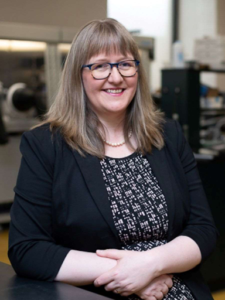 Francesca Kerton is a professor of Chemistry at Memorial University of Newfoundland and has a global reputation for her innovative research on sustainable chemistry related to the oceans. She is a Fellow of The Royal Society of Chemistry and is a member of many scientific panels and committees worldwide. She currently chairs IUPAC’s standing committee on Chemical Research Applied to World Needs (CHEMRAWN) and is chair of the 27th Annual Green Chemistry & Engineering Conference, which will be held in June 2023. She is an Advisory Board member for Reaction Chemistry & Engineering and an Associate Editor for RSC Sustainability. She will chair the 2027 IUPAC World Chemistry Congress and General Assembly, which will be held in Montreal, Canada.
Francesca Kerton is a professor of Chemistry at Memorial University of Newfoundland and has a global reputation for her innovative research on sustainable chemistry related to the oceans. She is a Fellow of The Royal Society of Chemistry and is a member of many scientific panels and committees worldwide. She currently chairs IUPAC’s standing committee on Chemical Research Applied to World Needs (CHEMRAWN) and is chair of the 27th Annual Green Chemistry & Engineering Conference, which will be held in June 2023. She is an Advisory Board member for Reaction Chemistry & Engineering and an Associate Editor for RSC Sustainability. She will chair the 2027 IUPAC World Chemistry Congress and General Assembly, which will be held in Montreal, Canada.